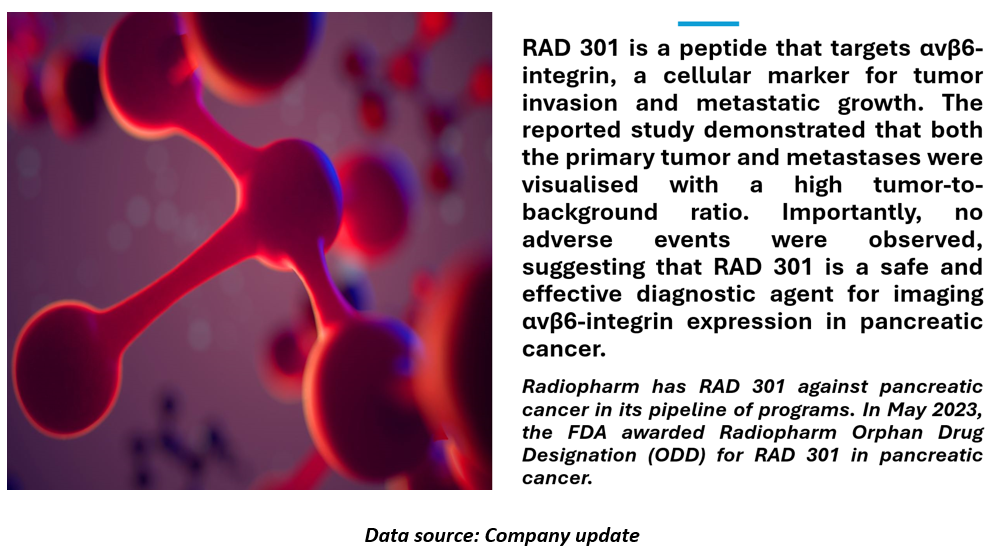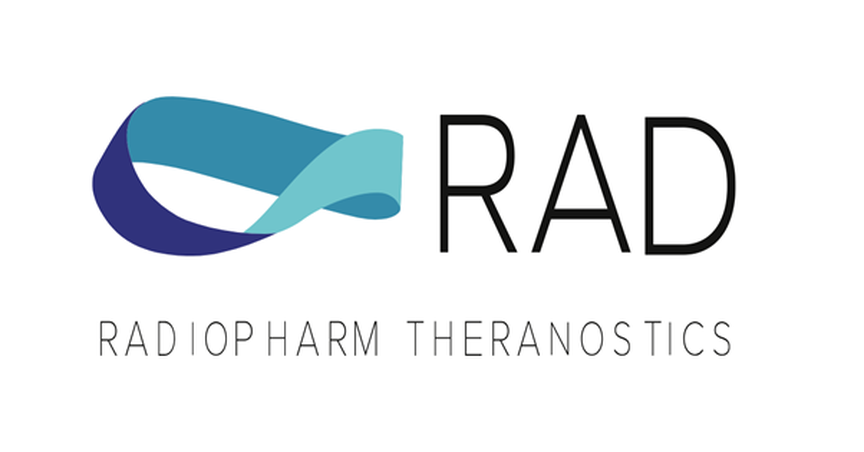Highlights
- Radiopharm Theranostics surged 12% on the ASX following a promising update on RAD 301.
- A 68Ga-Trivehexin clinical study published in Frontiers in Nuclear Medicine highlights RAD 301's potential in diagnosing pancreatic cancer.
- No adverse events were observed in the study, suggesting RAD 301 is a safe and effective diagnostic agent for pancreatic cancer.
- The FDA has granted Orphan Drug Designation to RAD 301 for the treatment of pancreatic cancer.
Radiopharm Theranostics (ASX:RAD) is making waves on the ASX today, with shares surging by approximately 12% to AU$0.028, following a promising update on its RAD 301 imaging agent. The company’s announcement highlighted the significant clinical potential of RAD 301 in diagnosing pancreatic cancer and its metastases.
Radiopharm’s update highlighted that a clinical study involving 68Ga-Trivehexin (68Ga-RAD 301), led by Dr. Rehm and the team from Technische Universität Dresden, has been published in “Frontiers in Nuclear Medicine”. The paper, titled "αvβ6-integrin targeted PET/CT imaging in pancreatic cancer patients using 68Ga-Trivehexin," presented clinical findings from a retrospective study on the biokinetics of 68Ga-RAD 301 in pancreatic cancer patients. Notably, the study, which involved 44 patients, represented the largest cohort of individuals imaged with RAD 301 using any tracer to date.
The results indicated that both the primary tumour and metastases were well-visualised with a high tumour-to-background ratio, showcasing the potential of RAD 301 as an effective imaging agent for pancreatic cancer.

“Current imaging standards of care for the detection of PDAC have significant limitations, making this one of the highest areas of unmet medical need and posing a major challenge for healthcare providers in imaging PDAC patients,” said Riccardo Canevari, CEO and Managing Director of Radiopharm Theranostics. “These findings reinforce the clinical potential of RAD 301 as an imaging agent for the more sensitive and selective detection of pancreatic cancer and its metastases, ultimately advancing PDAC patient management.”
Currently, a Phase I imaging trial (NCT05799274) with 68Ga-RAD 301 in Pancreatic Ductal Adenocarcinoma (PDAC) patients is underway at the Montefiore Medical Center, Albert Einstein College of Medicine, NY, the USA. The study aims to assess the radiation dosimetry, safety, and imaging characteristics of RAD 301 in patients with advanced PDAC.



